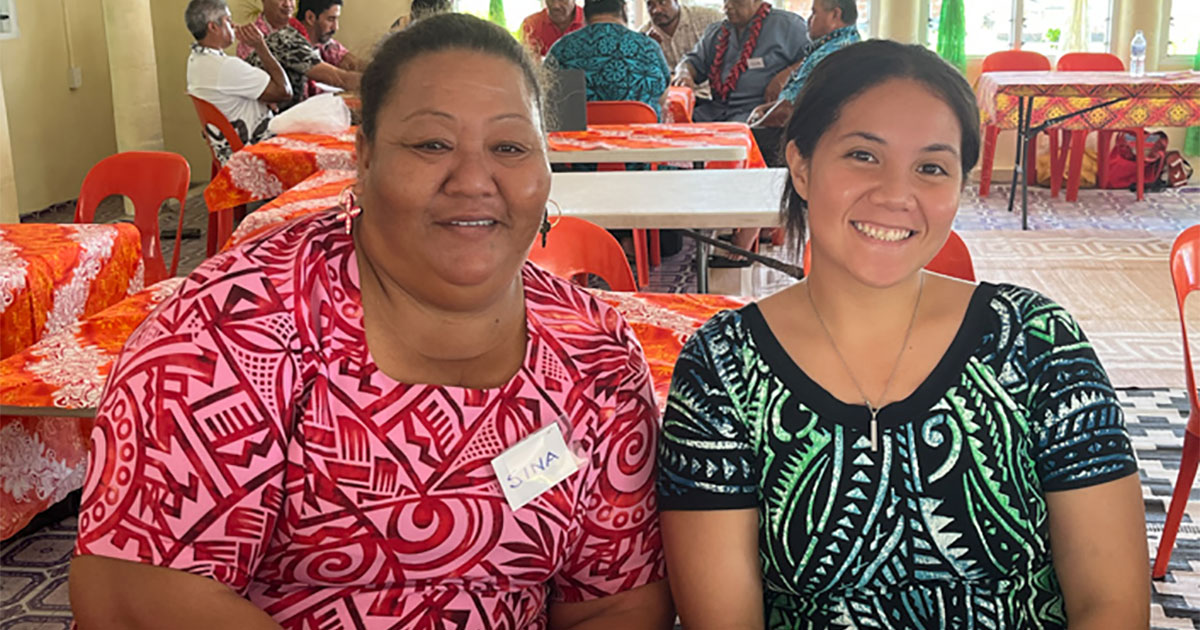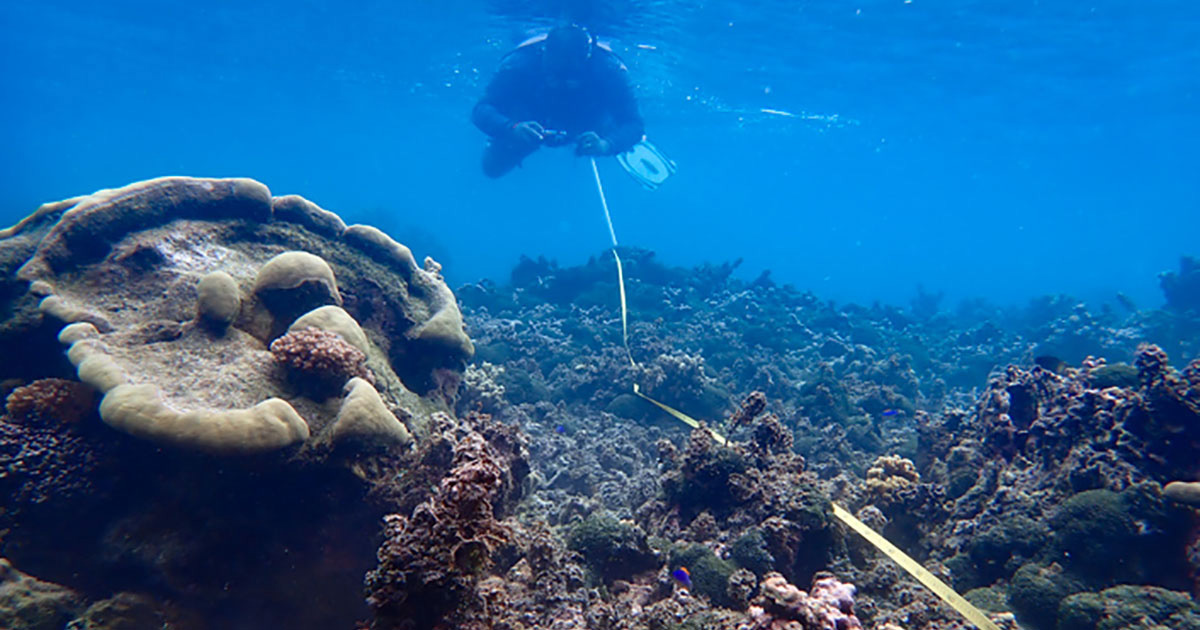Australian Institute of Marine Science (AIMS) scientists are collaborating with the Samoan Government to introduce fast, image-based coral reef monitoring to Samoa.
Over two weeks, AIMS scientists provided training and facilitated a multicultural workshop to incorporate traditional ecological knowledge into coral reef monitoring as part of an Australian Government-backed program.
Climate change is accelerating its impacts on ecosystems and livelihoods across the globe and is widely recognized as the greatest threat to coral reefs worldwide. Increasingly frequent and severe coral bleach events are outpacing corals’ ability to regenerate and adapt to warmer temperatures.
Representatives from Samoa’s Ministry of Natural Resources and Environment and Ministry of Agriculture and Fisheries, Secretariat of the Pacific Regional Environment Program (SPREP) and Conservation International (CI) learnt how to use AIMS’ ReefCloud platform to enhance their existing coral monitoring programs.
ReefCloud is an open-access digital tool that combines Artificial Intelligence (AI) and advanced data science to rapidly extract and share data from images of coral reefs. It makes coral reef monitoring faster and more efficient, standardizes data collection and delivers real-time information of reef conditions to inform reef management decisions.
 Danita Strickland (Conservation International) leads a coral monitoring prioritization discussion with youth representatives from Samoa’s Aleipata District. (Image credit: E. Maher)
Danita Strickland (Conservation International) leads a coral monitoring prioritization discussion with youth representatives from Samoa’s Aleipata District. (Image credit: E. Maher)
Following the week-long training, AIMS and CI facilitated the first of three knowledge exchange workshops where traditional practices and knowledge were shared by Samoan community members, the Sea Women of Melanesia (from Papua New Guinea) and Gidarjil Development Corporation (Australian) representatives.
The week-long workshop, in the Aleipata district of Samoa, explored how traditional knowledge from the three cultures could be incorporated into a coral reef monitoring framework that could be used across the Pacific.
The participants shared their expertise and experiences in traditional management practices, monitoring techniques, and reporting needs to inform the framework's design.
Representatives from the Samoan Government and SPREP were also involved in the workshop.
 Dr. Manuel Gonzalez Rivero (AIMS) with Samusu Lavailemoa (Matai Representative of the Aleipata District) and Reverend Ameto. (Image credit: E. Maher)
Dr. Manuel Gonzalez Rivero (AIMS) with Samusu Lavailemoa (Matai Representative of the Aleipata District) and Reverend Ameto. (Image credit: E. Maher)
AIMS Research Team Lead and ReefCloud Director Dr. Manuel Gonzalez Rivero said Pacific Island nations such as Samoa depended upon coral reefs for sustenance, income, and coastal protection.
“Over the past decade Samoan coral reefs have been impacted by tsunamis, mass coral bleaching, crown-of-thorns starfish outbreaks and cyclones,” he said.
“A lack of consistent and long-term information about the condition of coral reefs makes it difficult to make decisions about how to best protect and manage these reefs.
“We are bringing together Traditional Owners from Australia’s Gidarjil Development Corporation and Papua New Guinea’s (PNG) Sea Women of Melanesia to work with Samoan communities to help design a coral reef monitoring framework that empowers local communities in managing marine resources.
“The aim is to develop a monitoring framework that integrates traditional ecological knowledge and is scalable across the Pacific.”
Dr Gonzalez Rivero said participants were enthusiastic about sharing knowledge and incorporating ReefCloud into their reef monitoring. A translated comment from one Samoan participant was: “I learned we can share the knowledge of our cultural resources so the village can work together for a better livelihood. Our opportunity to do and implement the activities can improve our marine resources. Thank you for an amazing week of knowledge sharing with PNG and Australia.”
 Sina Ofoia (Vailoa Village Representative), Sinalilo Vani (Conservation International). (Image credit: E. Maher)
Sina Ofoia (Vailoa Village Representative), Sinalilo Vani (Conservation International). (Image credit: E. Maher)
Sea Women of Melanesia Program Manager Naomi Longa said the group was honored to have contributed cultural knowledge to the collaborative effort.
“It was heartening to witness such genuine cooperation between different communities to preserve our natural resources and marine ecosystems,” she said.
“We hope we have contributed a significant step to crafting the monitoring framework that truly respects and integrates the needs and aspirations of all involved.
“We look forward to continuing this journey together, building on the foundations laid during the workshop, and collectively contributing to the sustainable development and preservation of our beloved Pacific region.”
The program is part of a four-year investment by AIMS and the Australian Government. It will help to build coral reef monitoring capabilities in the Pacific region by expanding the use of ReefCloud as part of the Pacific Coral Reef Action Plan.
It is also supported by the Global Coral Reef Monitoring Network (GCRMN) and Accenture.



